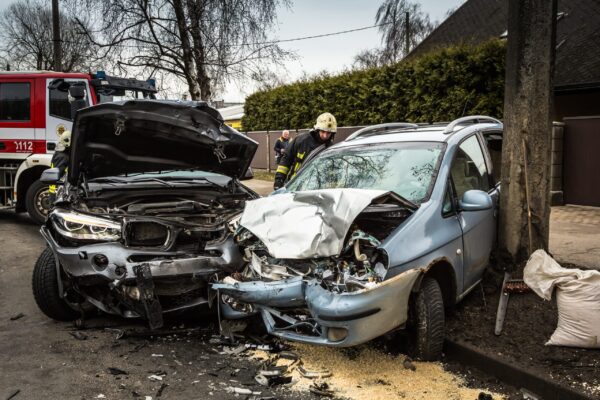Saftey First:
First, ensure the safety of everything. Check yourself and your passengers for injuries. In case of any injuries, first, make a call to emergency services. Shift to a safe place if the accident happened in an unsafe area, like a busy road or highway. Turn on flashers to alert other drivers. Place warning triangles or flares at a suitable place to warn other road users that an accident has occurred if it can be done and the vehicle is provided with flares or warning triangles. Document the Scene:
Take photographs of the damaged vehicles at the scene from different angles, including road conditions (potholes, skid marks) and any signs or lights that might be relevant to the events. Obtain contact information from the parties, including names, phone numbers, addresses, and insurance information. Get any witnesses’ statements and contact information to the accident since their account may be central in determining fault. Be sure to note the names and badge numbers of the responding law enforcement officers; also, take down the report number for the police. Ask that the police report be mailed to you for recordkeeping. Notify Authorities:
Call the police to report the accident if there has been injury or significant property damage, especially if fault is an issue. Always cooperate with the police who will have come to the scene. Give accurate information about the accident, but do not make admissions touching on the responsibility for the accident. Follow any instructions the police give, such as moving vehicles to a safer location or seeking medical attention.
Notify Your Insurance Company:
The insurance company should be called promptly to advise them that the accident has occurred. Most of the insurance policies usually prompt one to be on alert in case of any accidents that have been caused. Include details about the accident in which you are involved. This includes details such as the date, time, and exact place of the accident, as well as a brief description. Always cooperate with your insurance company in their investigation, but never admit fault or give recorded statements without legal advice.
Seek Legal Advice:
Discuss the same with an experienced attorney specializing in motor vehicle accidents. This professional can value your case and explain your rights and the best course of action. Your attorney can help you not only move through the complexities of insurance claims but also negotiate with any insurance companies you must, taking on most of the responsibility for speaking on your behalf in any necessary court proceedings. Make sure the attorney you hire has experience in that type of case and a reputation for succeeding in getting the appropriate compensation for their clients. Following these steps and seeking appropriate legal advice from the qualified people concerned, one can ensure his rights are protected and the compensation due is received after the occurrence of a motor vehicle accident.




